Still Queasy After All These Years
Let's hope that Michael Chertoff's "gut feeling" that something bad will happen this summer is just the result of something he ate. But what has the homeland security czar been doing, besides monitoring his belly?Let’s hope that Michael Chertoff’s “gut feeling” that something bad will happen this summer is just the result of something he ate.
But what has the homeland security czar been doing, besides monitoring his belly? While Chertoff was sharing details of his physical distress over the possibility of an al-Qaida attack, a new congressional report showed how easy it was to fraudulently obtain a license to buy radioactive material. All it took for undercover investigators to flimflam the Nuclear Regulatory Commission was a post-office box at Mail Boxes Etc., a telephone, a fax machine and some fast talking.
“If al-Qaida had set up a phony corporation in the U.S., they could have gathered enough material to make a dirty bomb,” said Sen. Norm Coleman, R-Minn., who requested the sting operation.
That makes me want to reach for the Pepto-Bismol too.
At this point, the most powerful nation on Earth has been at war with al-Qaida for nearly a decade — much longer than it took to defeat the Nazis in World War II. Why does Chertoff still have to worry about al-Qaida at all?
Maybe because a new U.S. intelligence estimate reportedly concludes that al-Qaida is growing stronger, not weaker. The terrorist group’s leadership — presumably including Osama bin Laden, whom we haven’t seen in a while — has found safe haven in the remote fastness of western Pakistan. There, essentially unmolested, the group has been able to rebuild and develop a capacity for mayhem that it hasn’t had since 2001, the report is said to assert.
“We see more training. We see more money. We see more communications,” a CIA official told a House committee Wednesday.
Pakistani President Pervez Musharraf, whom the Bush administration considers a key ally in the “war on terror,” declines for political reasons to send troops into the region in pursuit of the terrorists. He also refuses to allow the United States to do so.
Of course, this could have been prevented in 2002 after U.S.-led forces routed the Taliban in Afghanistan and drove al-Qaida into the mountains. If the Pentagon and the CIA had maintained the focus on bin Laden, it’s hard to imagine that at this point he would be plotting how to grow his organization. But the administration’s focus — and the necessary resources — shifted to Iraq, where there was no al-Qaida presence. The rest is history.
“The same folks that are bombing innocent people in Iraq were the ones who attacked us in America on September the 11th,” President Bush insisted Wednesday. But those who planned and executed the Sept. 11 attacks are either dead, in U.S. custody or holed up in Pakistan. They are nowhere near Iraq.
The U.S. invasion did give inspiration and opportunity to terrorists who renamed their organization “Al-Qaida in Iraq” and pledged fealty to bin Laden and the real al-Qaida. That is Bush’s rationale for saying the two groups are the same, even though they’re really not.
Bush said he is determined to fight al-Qaida wherever he finds it. As a practical matter, al-Qaida’s Iraq franchise has been able to lure the United States into the middle of a sectarian civil war, in which U.S. forces not only have to fight terrorists but also Sunni insurgents and Shiite militias. Bush has tied U.S. prospects to an Iraqi government that, according to the White House’s own new assessment, has failed to make progress toward a political solution.
With U.S. forces bogged down in Iraq and the nation preoccupied with finding a way to end Bush’s war, I wonder how bin Laden, Ayman al-Zawahiri and the rest of the al-Qaida headquarters leadership are taking advantage of this respite. Are they planning another spectacular attack? Are they communicating with autonomous, like-minded terrorist cells in Europe, Africa, the Middle East or even the United States? Are they content, for the moment, just to inspire their followers around the world with occasional videotaped exhortations?
I agree with Bush on one thing: Surely al-Qaida’s surviving leaders are up to no good. We haven’t neutralized al-Qaida; we’ve dispersed it. We haven’t decimated the organization; we’ve inspired new recruits to take the place of those members we have killed or captured. And Bush has us worrying about the political leanings of obscure tribal leaders in Iraq’s Anbar province, while the real enemy schemes and waits — and probably laughs.
Meanwhile, we haven’t even put in place effective controls over radioactive materials. I guess it makes sense that Chertoff is feeling a little queasy.
Eugene Robinson’s e-mail address is eugenerobinson(at symbol)washpost.com.
© 2007, Washington Post Writers Group
Your support matters…Independent journalism is under threat and overshadowed by heavily funded mainstream media.
You can help level the playing field. Become a member.
Your tax-deductible contribution keeps us digging beneath the headlines to give you thought-provoking, investigative reporting and analysis that unearths what's really happening- without compromise.
Give today to support our courageous, independent journalists.

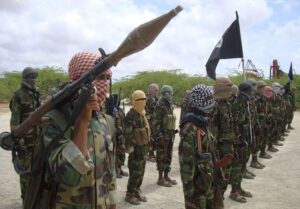
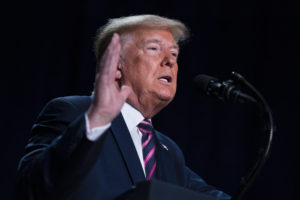
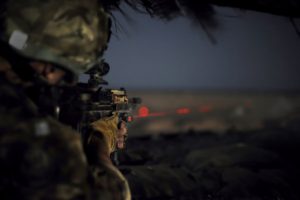
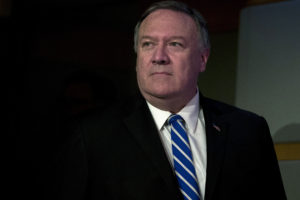
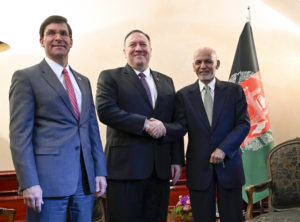
You need to be a supporter to comment.
There are currently no responses to this article.
Be the first to respond.